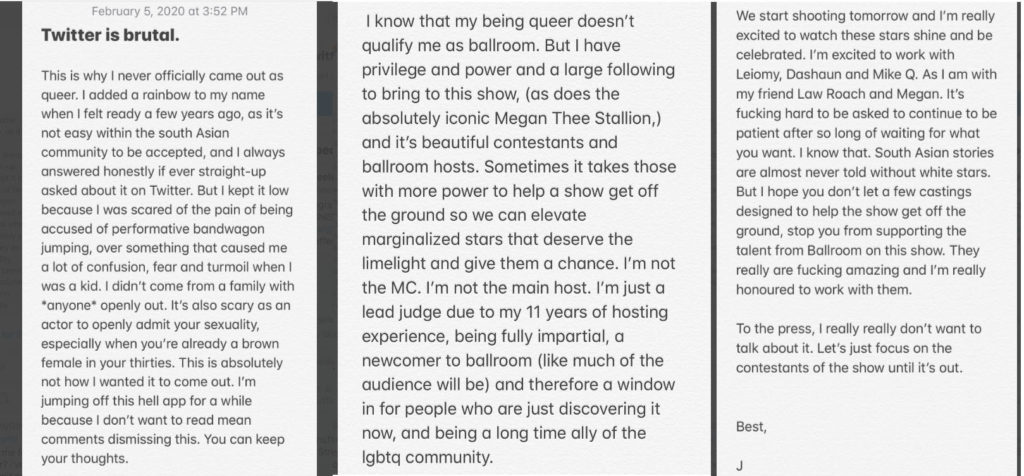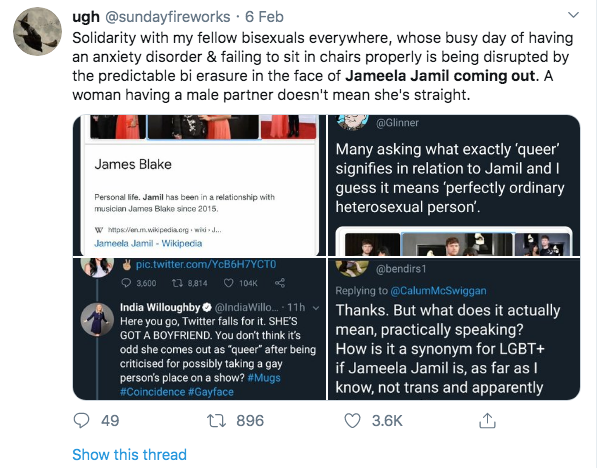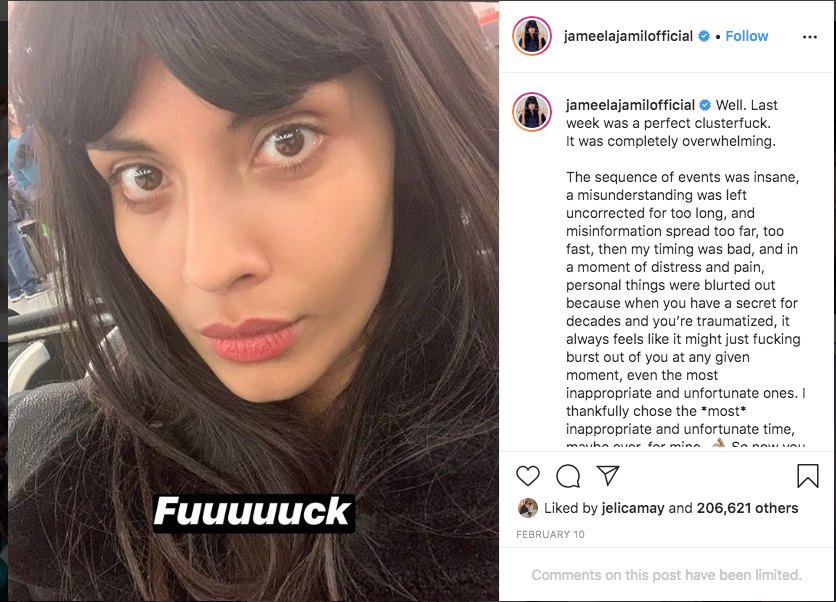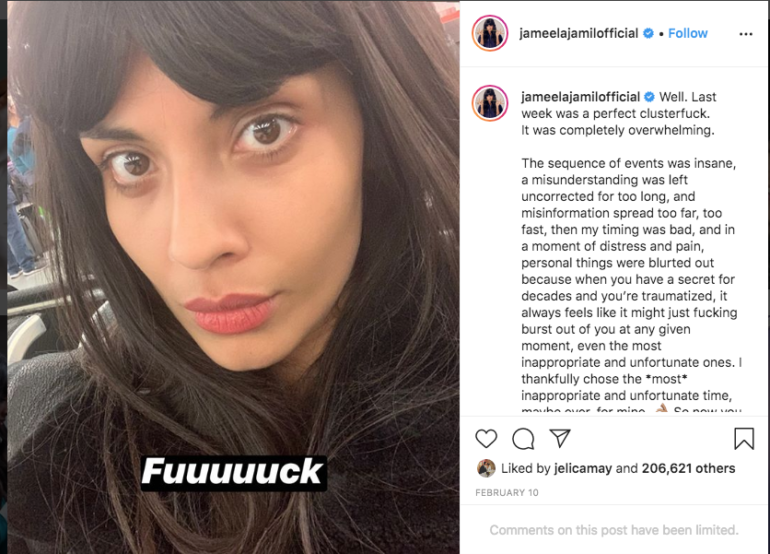With the debate still raging about Jameela Jamil’s coming out, Emily explores how we view sexuality and authenticity online
When Jameela Jamil came out recently, the reaction on social media was decidedly mixed. She had spent some days being criticised because of the announcement of an upcoming TV show she is a judge on.
The show, Legendary, to be aired on HBO, is described in Variety as turning “modern-day ball culture into a competition, featuring divas battling on teams called “Houses” in challenges involving fashion, dance and voguing.”
The dance style became popular in the 1980s and its roots can be traced back to 1920s Harlem, where ballroom drag competitions took place. These offered a place for queer people of colour to express their sexuality safely. This particular subsection of the LGBTQ+ community has recently been explored in the programme Pose, as well as the 1990 documentary Paris is Burning.
Many people on social media and people within and around the ballroom scene felt that Jameela, being neither part of that community or the wider LGBT+ community, was wrong for accepting the job.
As part of her response to criticism, Jameela stated that she was queer. In her statement, she kept her queerness “low” because she was “scared of the pain of being accused of performative bandwagon jumping.”

Reactions then went across a spectrum of thoughts – from support to anger at those critical of her, to sceptical. Some people felt that Jameela was claiming queerness as a way to avoid critique of her involvement in Legendary.
Miss J Alexander, who sprang to fame on America’s Next Top Model, appeared unimpressed by the news that Jameela had come out. He said “Girl, Cut it out. Be you, do you, and then I’ll love you even more.” He also said, “Can’t we just be gay and done?”



As the week progressed, and the debate raged on, Jameela released further statements – especially around the timing of her coming out. She said that the week had been a “clusterfuck” and that her timing had been bad and not appropriate.
Perceptions on coming out
It’s easy to get sucked into the drama about Jameela’s statements online – especially when daily there are more developments in what looks to be turning into a long-running saga.
But, what this week has definitively shown is that judgment comes fast for some people who decide to come out on social media. And, it raises questions about who gets to decide what qualifies as ‘authentically queer’?
One of the criticisms of Jameela is that she has a boyfriend and so can’t be queer. Though she hasn’t clarified whether she is bisexual, this is a really old and well-worn trope for many bisexual women. Many already struggle with the misconception they are not really bisexual when they date a man.
For other people, the idea that someone they consider to be privileged – especially who has perhaps, up until now, experienced the privilege of the perception of them being straight – suddenly announcing they have struggled with their queerness feels jarring.

Authentic sexuality?
Is there such a thing as being ‘performatively queer?’ Can we decide who qualifies for such a label? And if so, how?
How does seeing someone like Jameela take flak for coming out affect young LGBTQ+ womxn – when we may or may not be out? When we’re questioning our sexuality or when we don’t feel as we have been very ‘out’ – LGBTQ+ womxn can sometimes feel that we don’t qualify somehow to label ourselves as queer.
It seems to be clear that Jameela has accepted that some of the ways she dealt with the furore over Legendary and coming out could have been handled differently. But can we know if this is because of the amount of criticism she has received? We can guess – but just like deciding if Jameela is ‘authentically queer’ or not – it would only be a guess.
Celebrating sexuality and identity
The world is tough enough for people who don’t fit the norm and who struggle with their sexuality. Social media can be brutal and it’s often extremely scary to come out online as well as in your day to day life.
Rather than having discussions about whether Jameela really is queer or not and casting aspersions on her announcement, perhaps we, collectively, would do better to focus on the ways we can help each other to celebrate sexuality and identity.
We never know what is truly in someone’s deeper thoughts – so at Herkind we prefer to take people at face value and accept that queerness may look different for each Womxn.

